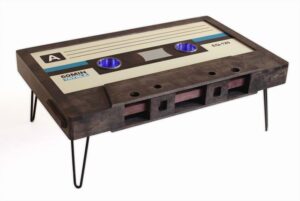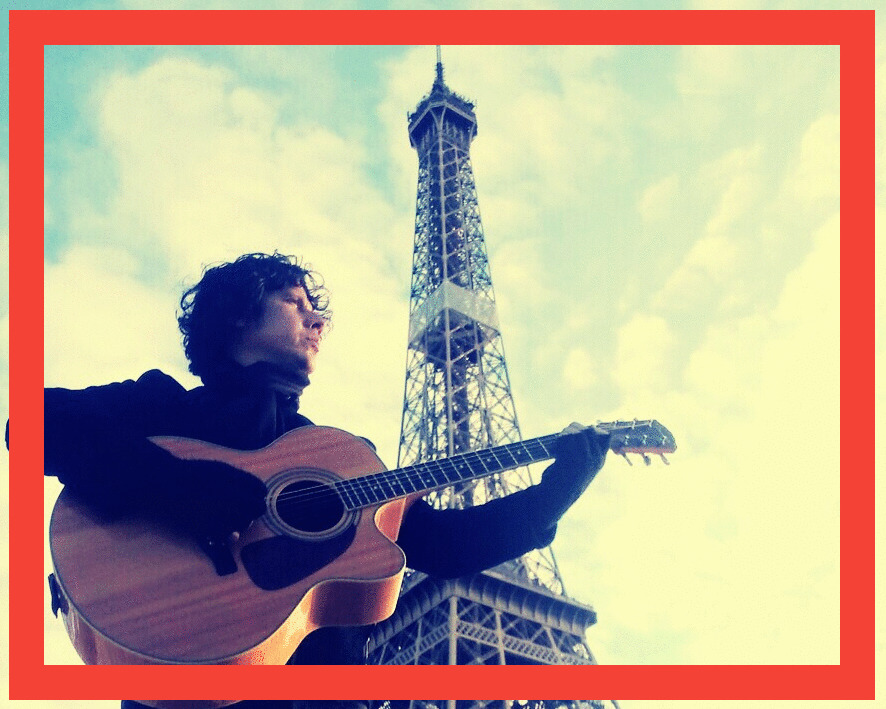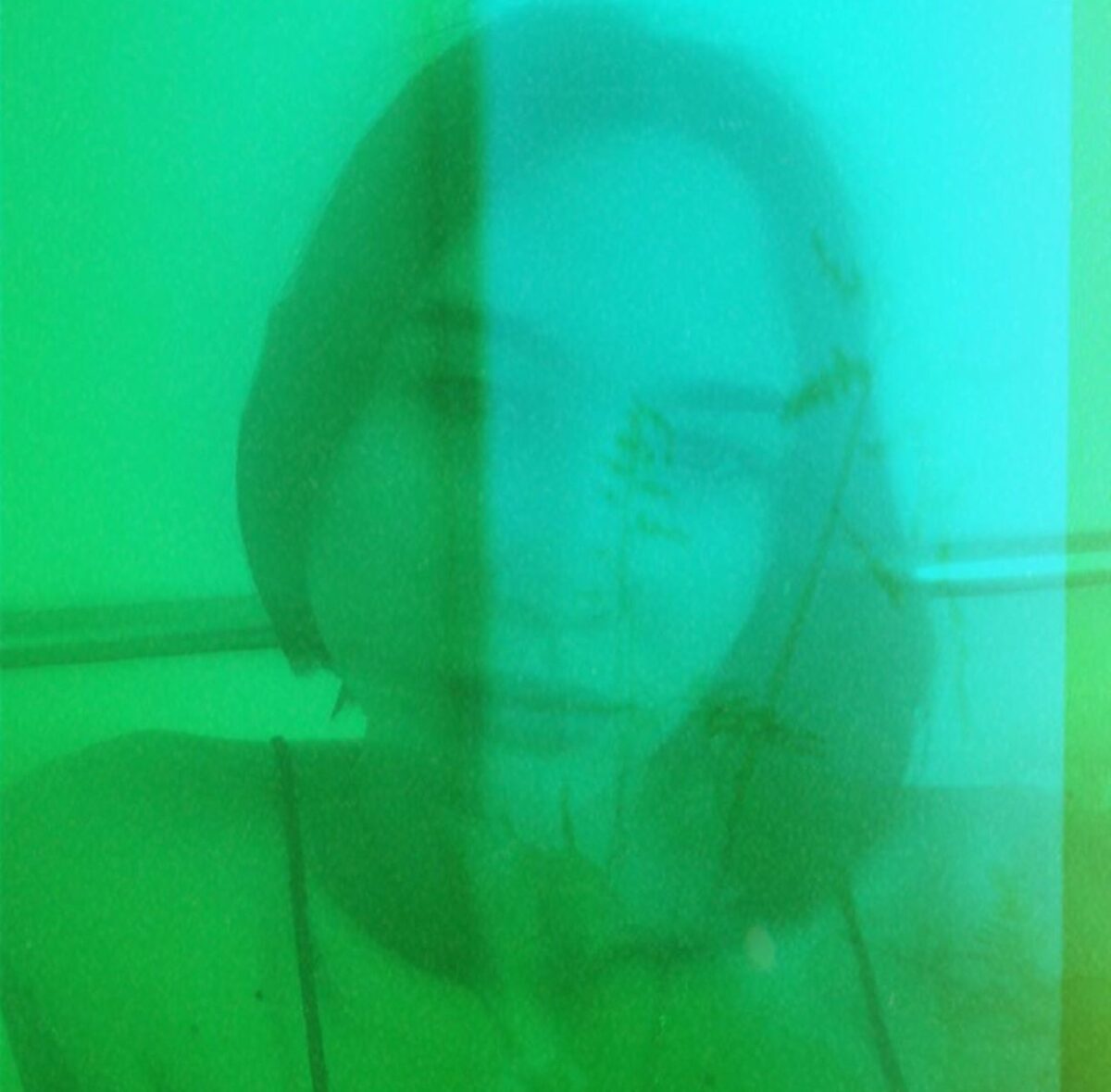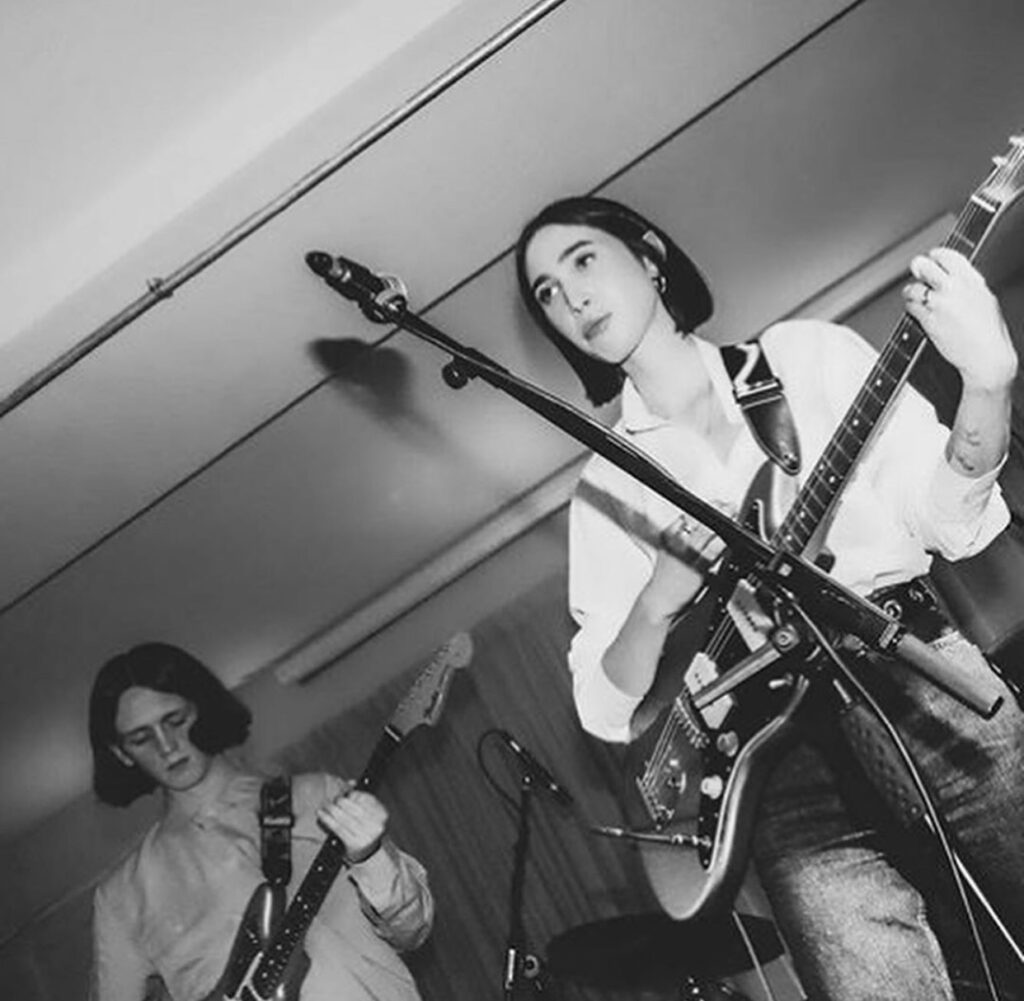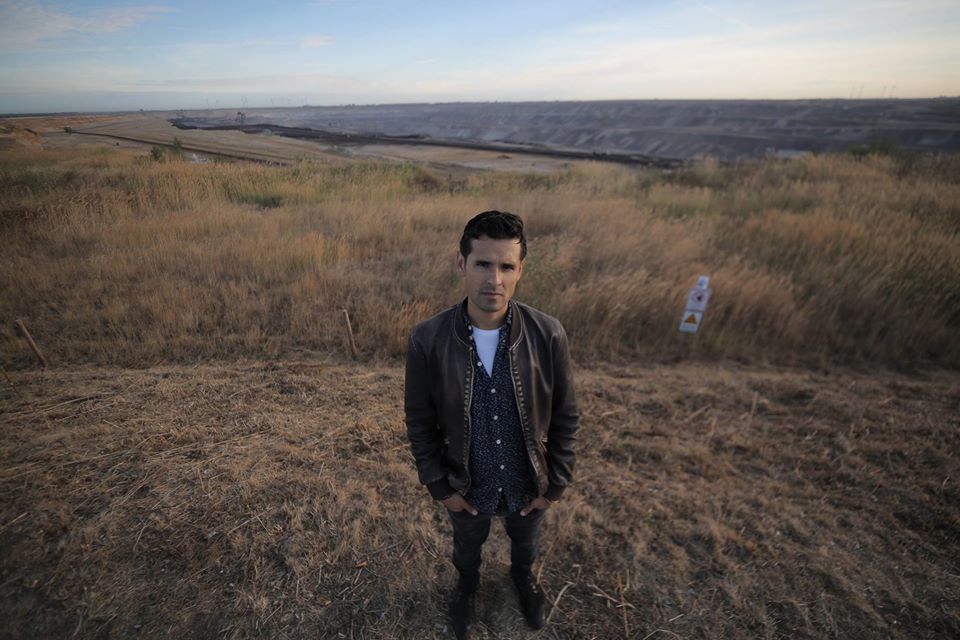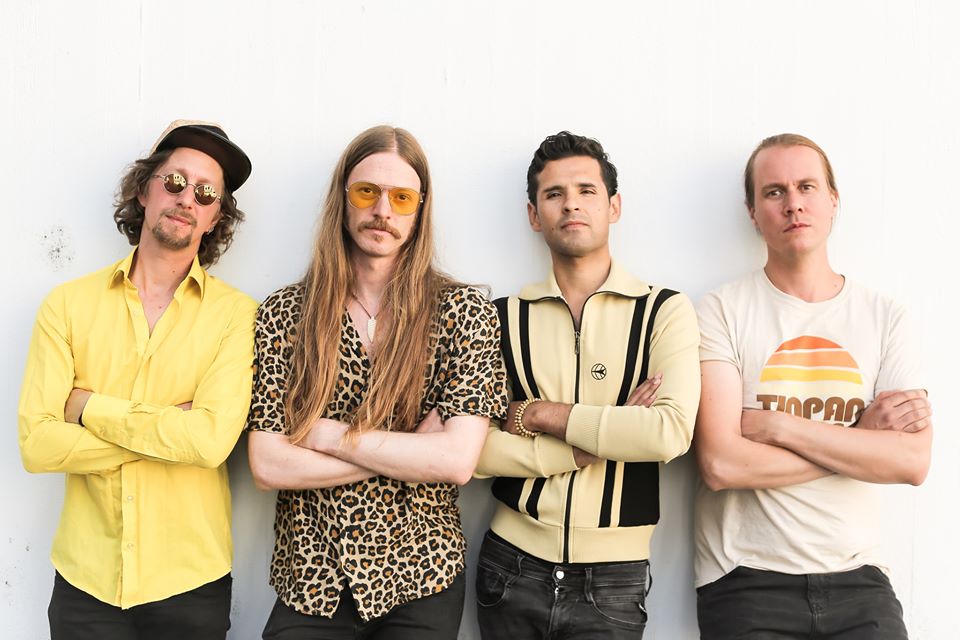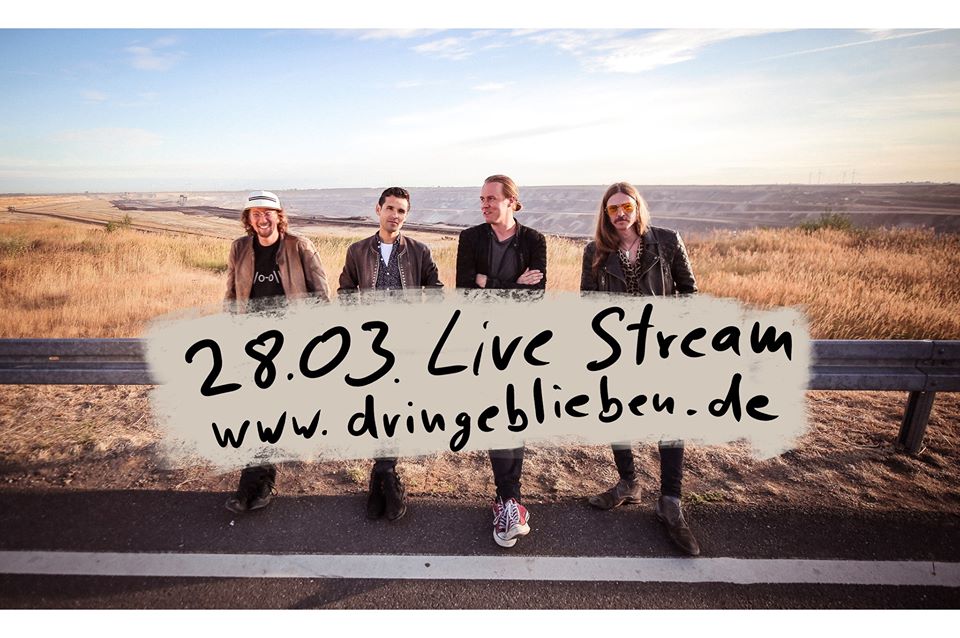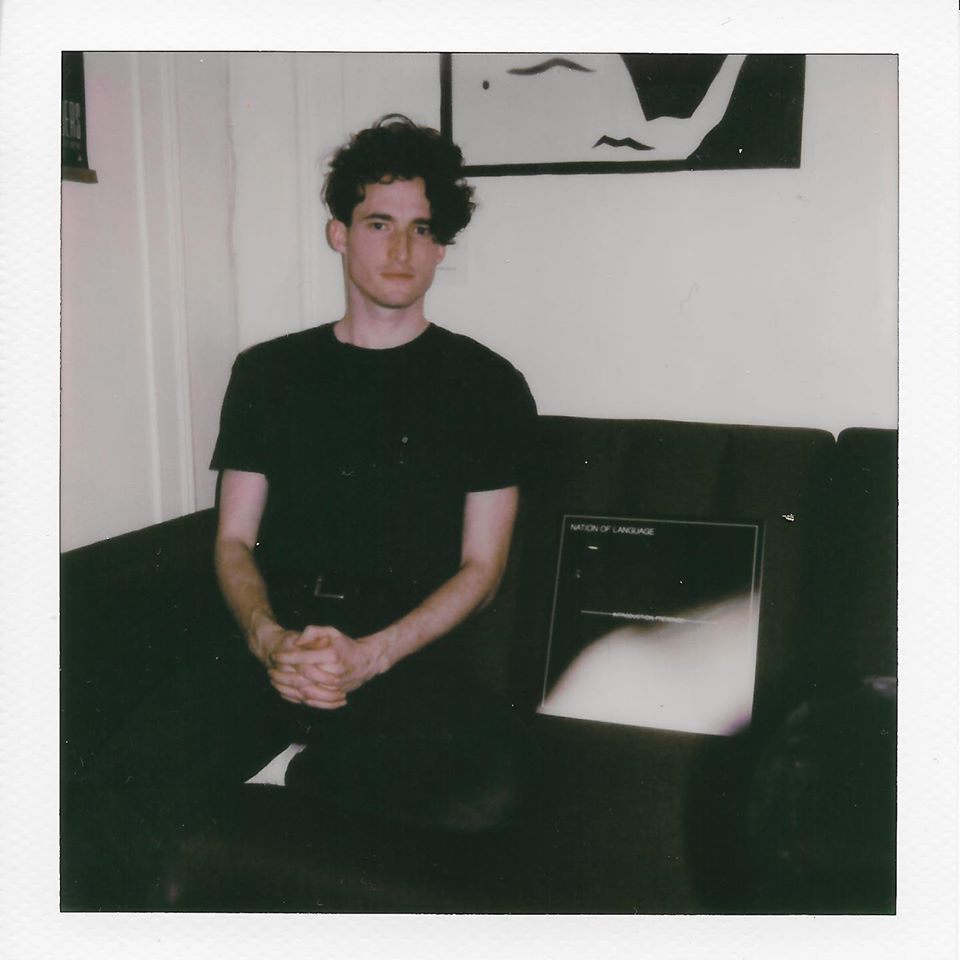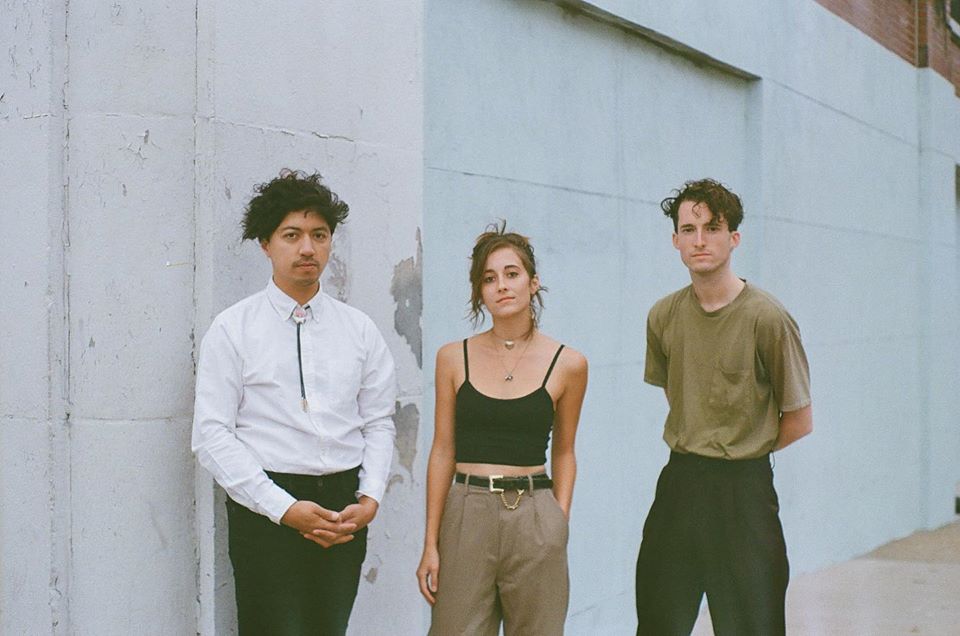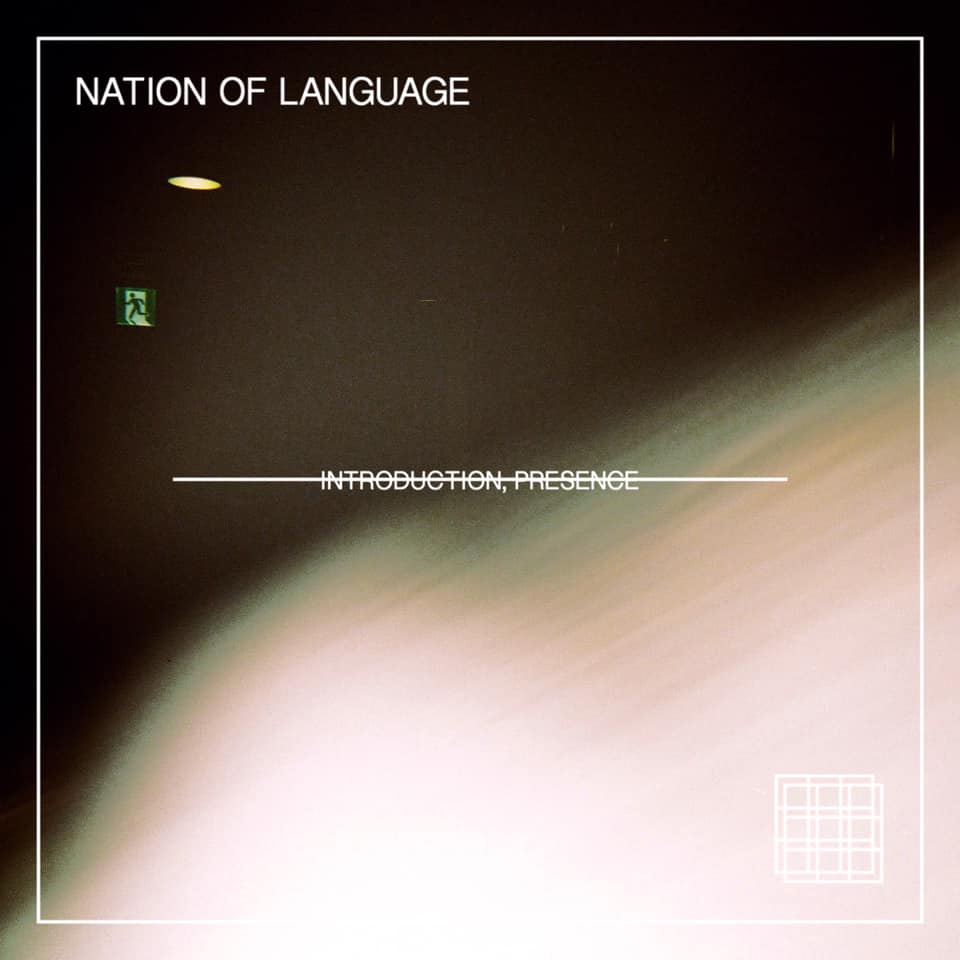…Y dice… este zine cumplió su primer año este mes. Han sido 12 meses donde mediante este medio he podido dar a conocer nuevas propuestas, así como entrevistar a mis artistas preferidos. Digo preferidos, porque en efecto tanto Nation of Language como Julia Bardot estuvieron (y siguen) sonando fuerte en mis playlists antes de “mandarme” y escribirles para explorar pactar una entrevista. En esta ocasión -y creo que a modo de regalo del universo- tengo el gusto de entrevistar al gran Wayo, cantautor peruano y sospecho que viajero del tiempo…algo que descifraremos con la ayuda de las preguntas.
Me encomiendo al espíritu de Ian Curtis, me pongo una camisa negra, enciendo caja de ritmos 808, y desde este escritorio desde la hasta hace poco gélida Madrid de la mítica banda la Unión, me dispongo a entrevistar a otro mítico tan eléctrico.
MY – Sé que tu inicio en la música fue con Último Refugio, pero yo te conozco con tu segundo álbum “Eléctrica Ciudad” (2006). Recuerdo que mi primera reacción fue que me sonó adelantado a su época, casi como el “Siempre es Hoy” de Cerati. Había secuencias, bajos sinte, programaciones, y también guitarras distorsionadas, ritmos post punk y ecos en tu voz a los ‘eternos’ Peter Hook y Jim Morrison. Cuéntanos como llegaste a ese sonido tan particular? Le planteaste la idea al productor? O fue algo orgánico, donde se consiguió plasmar la energía del pasado a través de la modernidad?
Hola Mauricio, primero quiero agradecer tu tiempo y consideración para permitirme dar a conocer mi carrera. Gracias también por tus generosas palabras.
«Eléctrica Ciudad» fue un disco de largo aliento desde la composición (2004), la pre producción (2005) y la entrega final. La composición la hice en casa, había hecho varios demos pero no fue hasta que compuse el tema título del disco que supe de qué quería hablar: de mis amigos, de historias y personajes bajo el cielo gris de mi Eléctrica Ciudad (Lima).
Los sonidos estaban en mi cabeza, y desde la pre producción asomaban ruidos que grababa en los buses o en la calle camino al estudio, con el ingeniero sampleaba loops y buscaba con el guitarrista invitado un sonido de cuerdas más acorde al tráfico de la ciudad, de ahí las distorsiones, y creo que con mi voz es simplemente un fluir de acuerdo a la armonía, no tengo referencias vocales, lo que quiero es seguir descubriendo y aprendiendo a usar mi voz.
El disco era la visión de lo que para mí era moderno en aquel momento, usar el sonido del pasado como un eterno retorno, como materia prima para algo nuevo. Hubo mucho empeño en buscar cada sonido y cada detalle que a veces puede pasar desapercibido, lo recuerdo junto a «Hoy puede salir el sol», como el disco más trabajoso. Un detalle simpático es que fue catalogado por la prensa especializada como un «resurgimiento del pop local».
MY – Tu última producción “Intemporal”, es un disco sinfónico cuyo primer corte “Vuela” es una canción llena de esperanza y buena vibra. Te tengo que confesar que la frase “sonríe al despertar” me recordó a los consejos de un padre o a los de un abuelo. Es acaso “Vuela” un recuerdo de tu infancia que has buscado traducir en algo tangible como una canción? Como dice el maestro Alejandro Jodorowsky, el ser humano es producto de la influencia de nuestros antepasados, buscas inconscientemente dejarle un recuerdo a un ser querido?
Éste proyecto sinfónico «Intemporal» dónde estoy versionando mis canciones con instrumentación clásica, es una apuesta al futuro que me está sirviendo de norte en estos tiempos tan extraños donde muchos proyectos se congelaron (cuarto tour europeo, presentaciones en México y Santiago de Chile).
«Vuela» fue el primer lanzamiento a manera de dar un mensaje positivo a los amigos y familia. Puedes sentir que alguien te da una palabra de aliento quizá porque la compuse pensando en mi hijo mayor Santiago, quien ilustró la portada del single y es mi gran motivador de canciones. Inevitablemente al cantarla siento que también hablo de mi propio vuelo y me dá impulso para seguir adelante.
Con los años observo que uno es lo que canta, que hay casos en que el mensaje viene de algún lugar y uno simplemente lo recepciona, amplifica y difunde
Con los años observo que uno es lo que canta, que hay casos en que el mensaje viene de algún lugar y uno simplemente lo recepciona, amplifica y difunde. Y sí, como dice el maestro Alejandro, somos la suma de muchas vidas: pasadas y futuras. Y si bien mis canciones no son de autoayuda creo que humildemente ayudan.
Creo firmemente en el poder de la canción y como escribí en «Vámonos»: todo pensamiento es realidad, por ello busco que cada composición mejore el estado de ánimo, el propio y ajeno para generar algo mejor.
MY – “Intemporal” es un vuelco a la música clásica. Como lograste los arreglos y orquestación? Mientras que “Eléctrica Ciudad” fue un viaje al futuro, se podría decir que este disco es un viaje al pasado, en que era lo situarías tú? Me da la impresión que la música es una bitácora que te permite viajar por el tiempo.
La música es mi viaje, le debo la vida, la profesión, mi familia, la posibilidad de prosperar y de también llevar un poquito de alegría a quienes me siguen.
«Intemporal» es un sueño que he abrigado desde el año 2000 en que tuve la oportunidad de cantar con una orquesta sinfónica, luego en 2012 se volvió a repetir y desde entonces tenía esa ilusión de llevar mis composiciones a un formato que considero está más allá del tiempo, por eso lo de «Intemporal».
El año pasado, en plena cuarentena, se dió la oportunidad de compartir la idea, a raíz de que compuse el Himno de Santiago de Surco (mi distrito), con el gran equipo que conforman Emmanuel Ortega en arreglos y orquestación, y Carlos Marchan en mezcla, ingeniería y masterizado. Los arreglos mantienen los hooks de cada tema y también proponen nuevas ideas melódicas para que mi voz pueda contar las historias con más ímpetu de lo habitual, el formato me da esa libertad.
El plan es que el 28 de cada mes se estrena en todas las plataformas digitales, gracias a Altafonte Perú, un nuevo single del disco, hasta llegar a completarlo.
En cada uno de mis discos hay un nuevo rumbo a seguir, se propone esa bitácora que mencionas, que renueva mis sueños y planes, así me mantengo siempre andando en el camino, con la ilusión de hacer de la propia vida la mejor canción. Ahora el sueño es cantar en un teatro acompañado por una orquesta sinfónica y con público por favor!
MY – Estuviste girando por el viejo continente el año pasado, fue tu primera salida al extranjero? Como fue la respuesta del público en España, Francia, y Bélgica? Como fue la experiencia de conectar con un público francófono?
He tenido la oportunidad de vivir en Buenos Aires, Caracas, Puerto Ordaz y Maracay (en Venezuela), de cruzar por tierra Ecuador y Colombia, de conocer cantando las principales ciudades de mi país como: Cusco, Arequipa, Trujillo, Iquitos, Cañete, Ica, Oxapampa, Huánuco, Huancayo y Moquegua, y de viajar nuevamente al extranjero llevando mi música por Buenos Aires (dos giras en abril y julio 2015), Cancún ( febrero 2016), Madrid, París y Milán (julio 2018), Madrid y París (junio 2019) dónde gané un trofeo en el 6to Festival Latinoamericano de París; luego tuve dos presentaciones en Medellín (julio 2019), e hice mi tercera gira europea por Madrid, Bruselas, París, Lille y Tournai en octubre y noviembre 2019, lo cual quedó registrado en parte en el video de «Vuela + Sin disfraz».
En cada viaje he cantado para el público local, mis propias canciones y en castellano, lo cual es una reafirmación de que hay que creer para crear, sólo desde esa certeza los demás te pueden considerar, y así fue que el público fue muy amable y receptivo en todo momento y en cada lugar, comprobando así de que la música une y de que es el lenguaje universal.
MY – La pandemia del Covid ha tenido un impacto muy fuerte sobre la industria musical, en especial sobre las presentaciones en vivo. No obstante, el internet ha salido al rescate de la experiencia musical gracias a los “Streamings”. Si bien no tienes al público al frente, puedes conectar con gente de todos los rincones del mundo. En tu opinión, que significa llevar a cabo conciertos en formato digital? Cuéntanos cuando tienes tu próxima presentación?
Empecé éste emprendimiento del Compartir Acústico «La Música Une» impulsado por un amigo a manera de levantar el propio ánimo tras el congelamiento de los planes 2020, mi esposa se encargó de armar la propuesta y se formó amicalmente un equipo que me ayuda hasta hoy en redes y promoción, se cuenta con el respaldo en la difusión de medios independientes y amigos, y ver que una simple iniciativa puede generar unión es muy bonito. Así estamos llegando éste viernes a la semana número 44, increíble!
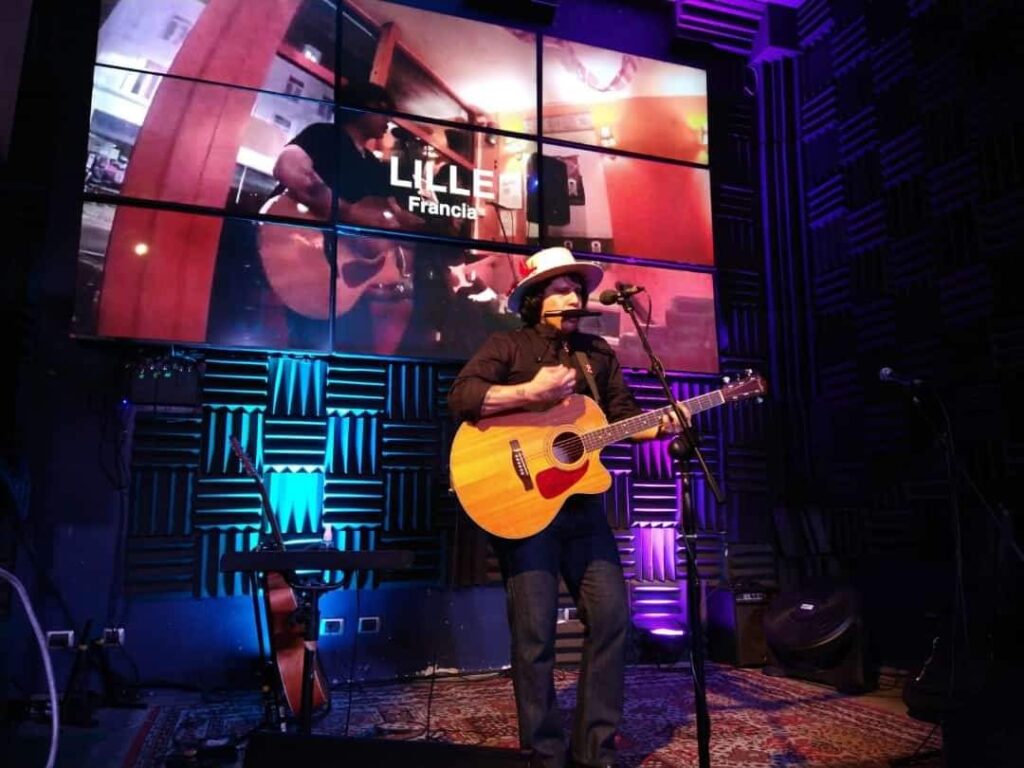
Mi transmisión va todos los viernes de 8pm a 9pm (hora peruana), y si bien los primeros eventos eran muy extraños por la situación de cantar frente a dos dispositivos (se transmite en simultáneo por FB + IG), se ha establecido una dinámica en donde mi esposa anota cada saludo y así me siento más acompañado y motivado para brindar un poquito de alegría a los amigos que se unen desde algunas ciudades de Perú, y también desde México, Guatemala, Madrid, Málaga, París, Washington, Atlanta, Buenos Aires, Santiago de Chile y Sidney, lo cual se agradece muchísimo por la diferencia horaria de algunas ciudades.
Al inicio había más público debido a la cuarentena extrema, ahora con la apertura se une un grupo de amigos casi de manera habitual, lo cual le da un sentido más familiar a cada viernes.
La intención es llevar a través de mi discografía un mensaje de bienestar, con mucho punche e ilusión.
Confieso que en algunas transmisiones he caído en cuenta de la realidad y de lo mucho que se extraña una mirada, una sonrisa y un aplauso pero la sola presencia de mi familia y de quienes se suman de manera virtual me genera un compromiso y renueva el entusiasmo para seguir adelante.
Creo que el poder conectar con gente de diferentes lugares es una maravillosa oportunidad para hacer que la música se transforme en acción.
Los espero éste viernes 19 en la semana número 44 por: Facebook.com/wayosite e Instagram.com/wayoperu , el acceso es libre.
Muchas gracias Mauricio por la oportunidad de conversar, a seguir adelante con tus proyectos!
La Música Une!
Conce más sobre Wayo aquí:
Youtube: enlace
Facebook: enlace
Twitter: enlace
Instagram: enlace
Spotify: enlace

